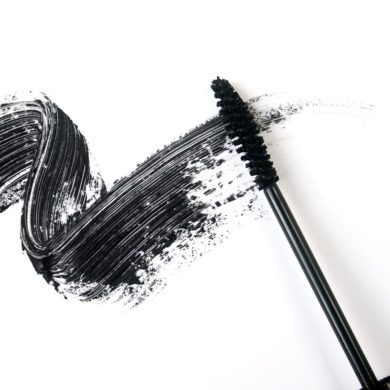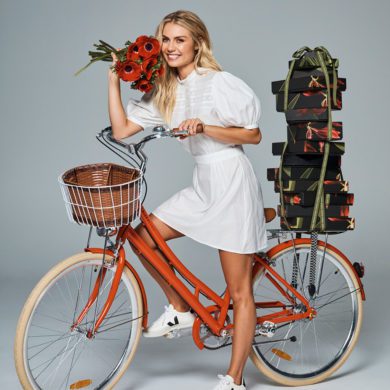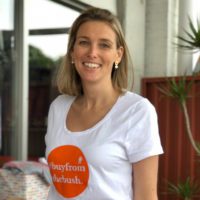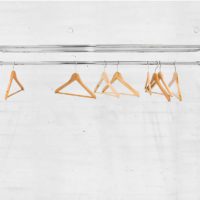Last week, I noticed something curious: My Facebook feed was suddenly becoming cluttered with mother and baby advertisements. Out of nowhere, I was being targeted with sponsored posts for everything from pregnancy health vitamins to baby clothing and children’s books.
It was bizarre because I have no children — and not that it’s anyone’s business, but I don’t plan on having any soon.
It didn’t bother me at first—I found it curious, mildly irritating and even a bit funny. It was a little like an overbearing relative asking me when I’m going to hurry up and get married. But I was not concerned enough to investigate further, or to flag up the ad as unwanted content. Mostly that’s because I reasoned it was only fair for Facebook’s mysterious algorithms to assume that I — a 30-year-old woman in my childbearing prime from advertisers’ point-of-view — might be interested in baby content.
Also, I thought, it might be a result of ‘liking’ posts from friends with babies across my social media profiles.
But then early this week I made a discovery that transformed the experience from odd to downright creepy. It became clear Facebook actually thought I was pregnant. And I think I know why.
It was a little like an overbearing relative asking me when I’m going to get married
Like many women, I use a period tracking app to chart my monthly cycle.
On Sunday, I opened the app to make an update, only to find an alert flashing at me. It was informing me that my period was very, very ‘late’.
In fact, it wasn’t late at all. I had simply forgotten to log last month’s cycle properly, and, because I have notifications for that app turned off, I hadn’t noticed when I didn’t complete the entry.
But the app had certainly noticed.
I corrected my cycle, and almost instantly the baby ads just stopped.
I began to feel uneasy as my mind made the connection between my period tracking app believing I had missed a cycle 10 days ago, and my Facebook account trying to sell me pregnancy paraphernalia within days of my period appearing to be ‘late’.
I have used this particular app for so long I don’t even remember when I downloaded it, or why I chose that brand. So I pulled up the app’s privacy settings and noticed that while it promised not to share details I ‘entered manually’ with its third-party partners, the terms and conditions’ language cleverly avoided ruling out sharing information about aggregated data – like patterns or trends.
I have chosen not to name the app here; it is not a well-known one, and appears to have been made by a small developer. Unless I have smoking-gun proof that it was selling my data to Facebook advertisers, I am not willing to make the accusation and damage someone’s business – they may have meant well, and it is an app I had until now enjoyed and used loyally for years.
What’s more, I wasn’t sufficiently troubled by the bizarre ads when I was seeing them to check the ‘why am I seeing this’ option on Facebook, or even to screenshot them.
This problem of proof is not just a quandary for journalists, though, but for any of us who are concerned enough to try to investigate how our personal data is collected and shared online.
Tech companies have an incentive to use opaque language, and the process to work out which apps are communicating with which websites, how often and why, can become confusing. For lay people like me, big tech has long felt like a wizard behind a curtain — clever, capable of changing how we experience the world in wonderful and spectacular ways, but ultimately powerful, without enough accountability.
This experience has confirmed to me I know too little about how much my social media technology and apps know about me.
In a world where advertising is no longer restricted to billboards and magazines, I don’t want it to become so intrusive it leaves me feeling unnerved. The realisation that my social media tech is likely to know I’m pregnant before I do is unsettling. And any time a company gathers more of your data, you have to wonder how soon the information being collected to sell things to you could be weaponised against you in future.
Insurers are already linking customers’ premiums to their diet and health tracking apps, rewarding those who lead a healthy lifestyle and penalising those who don’t.
Stories have emerged in recent years revealing some companies were secretly using period tracking calendars in an attempt to track the lives of their female employees.
But most upsettingly, after tweeting about my experience, I had an overwhelming number of responses from women who had experienced a similar phenomenon on their social media following pregnancy trauma.
The realisation that my social media tech is likely to know I’m pregnant before I do is unsettling
Several women revealed they were still being exposed to ‘happy baby’ advertisements on their social feeds after miscarriage or stillbirth. This is inappropriate, disturbing and should be a priority for the human beings behind these algorithms to find a way to address. However, it’ll need to be achieved without requiring grieving women to give up even more personal information in the process. Sadly, I can imagine this could lead to yet more sponsored posts hawking things for sale, like happy pills and self-help books.
Meanwhile, women who have had miscarriages have claimed they received ads for infertility treatment immediately after their pregnant loss.
Many people asked me – often men who have zero experience in this field – ‘why don’t you just use a paper calendar to track your period?’ But without revealing more information than I am willing to share, these trackers can be life-changing.
Many of us have irregular cycles, or are trying to get pregnant, or avoid pregnancy. Some women might have health problems that worsen throughout their cycle, their hormones might affect mental health disorders and medication, or they may be using a natural counting method because they can’t use hormonal contraception for health reasons.
On the convenience side – which is really no one else’s business but a woman’s own – knowing their cycle patterns might affect anything from when and how they choose to have sex, to what colour clothing they wear on a due day. It might give them a warning to pack sanitary items in advance, rather than avoid an expensive late-night rush to a corner shop for a heavily marked-up box of tampons.
Interestingly, many of the apps I looked at seemed designed to assume the user would be happy to get pregnant. They’re often pink-themed, focused on analysing when you are ovulating and flash excitable messages when your period is late. It lead me to wonder how many of these apps meant for women are designed by men – a quick spot of research confirmed mine was.
If you don’t think that matters, writer and campaigner Caroline Criado Perez is just the latest woman to point out how products designed by men – from ill-fitting spacesuits to car passenger seatbelts designed for men’s bodies – can actually end up excluding and even endangering women.
Women who have had miscarriages have claimed they received ads for infertility treatment immediately after their pregnancy loss
Since my tweets about my discovery went viral, I’ve been thinking about my next steps. The solution doesn’t have to be for me to stop using a tool that has improved my life, but this has been is a welcome wake-up call. I will be learning more about how to more carefully navigate technology that mines my personal data, and about how to investigate it as a journalist.
My experience reveals the cynical side to these mysterious algorithms that meticulously analyse my online behaviour to construct a picture of my fears and desires – to then sell on to advertisers.
When we hand over our data for free in exchange for a small online convenience, we become the product for sale. It is up to me to work out now what my boundaries are, and to decide the price of convenience.













No Comments